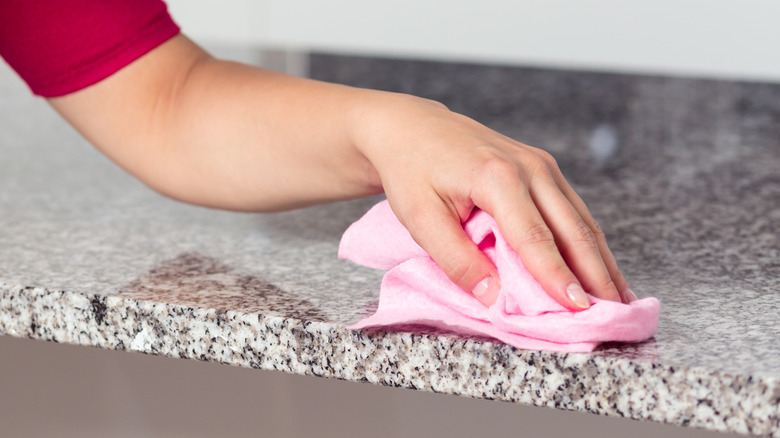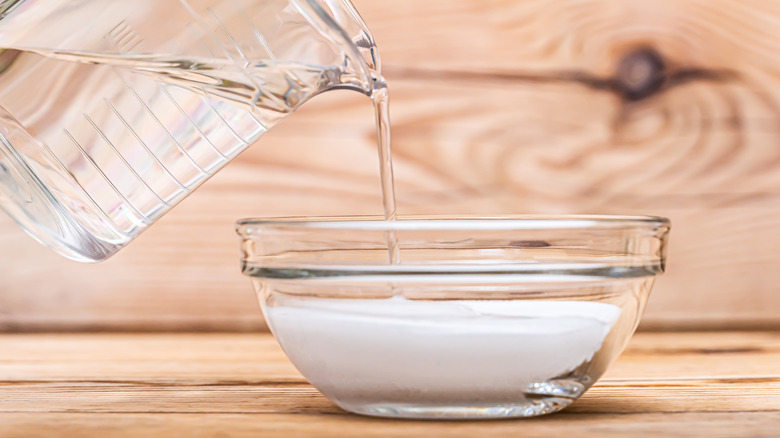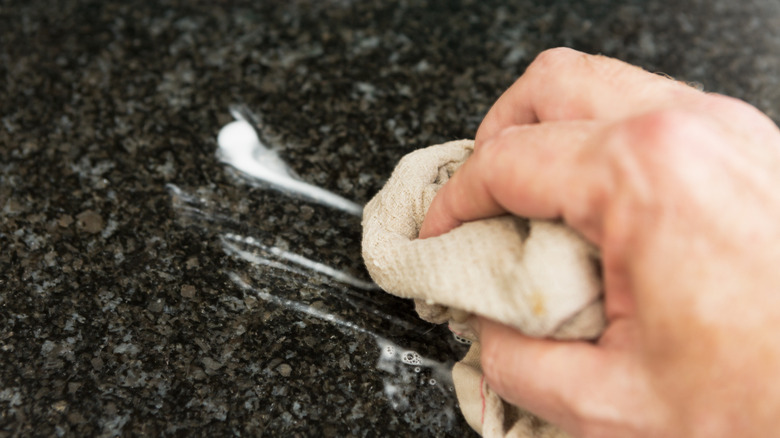Oil Stains On Granite Countertops Stand No Chance Against This Cleaning Staple
If you have ever been cooking and spilled some oil onto your granite countertop, your first thought might be to panic. Liquid stains can penetrate the surface of granite quickly, potentially leading to discoloration and damage. However, using the wrong cleaning materials to lift the stain could do even more damage. Fortunately, that's where pantry essential baking soda saves the day. Not just for giving baked goods a fluffy look, baking soda will help to banish any oil stains that have found their way to your countertop.
Being a natural stone countertop, granite is porous, meaning it's susceptible to being damaged by acidic substances like vinegar. However, because baking soda isn't acidic, it's much gentler on natural stone in general. As well as baking soda, you'll also need a handful of clean cloths, some water, and a roll of plastic wrap to carry out this cleaning method. It's best to follow the below steps as soon as you notice a mark so it doesn't set and become more difficult to get out.
This cleaning hack only requires a few steps
Before beginning, use paper towels or a dishcloth to soak up the majority of the spill, and then spritz a small amount of water directly onto the stain. Grab your baking soda and make a mixture of two or three parts baking soda with one part water until a thick paste has formed. Apply the paste to the affected section of your countertop in a thick layer. Next, grab some plastic wrap and stretch this over the stain, making sure you don't disturb the paste layer.
When you have covered the surface, pull the wrap tightly so it won't move, and then make some small holes for breathing room. You might need to add some tape to the sides of your countertop to ensure the wrap will stay in place. Leave the paste to work its magic for as long as you can. If the stain is particularly bad and hasn't disappeared after a few hours, you might need to let the paste sit overnight. When it's time to take off the plastic wrap, do so carefully. Apply some water to the area to get rid of all residue.
Here's what you need to know when using baking soda
To finish, dry the hopefully stain-free area with another soft cloth (for example, one made from microfiber). You can repeat the above steps if necessary to banish all traces of a stain that wants to stick around. Unlike acid-based ingredients that can also be used as a cleaning agent like vinegar, baking soda is an alkaline substance. However, you should only use baking soda when it has been mixed with water. Baking soda should not be used by itself on natural stone countertops as it could break the countertop seal, leading to a dull look.
While it's less abrasive than acid-based ingredients like vinegar, baking soda is still a mild abrasive, so it should not be used by itself. This is also why you should never scrub your countertop when applying the baking soda paste. The aim is to gently remove the stain. Simple and not requiring any specialist ingredients, this way of clearing up an oily mark is also all-natural, a major bonus if you're trying to limit your use of chemical cleaners.


